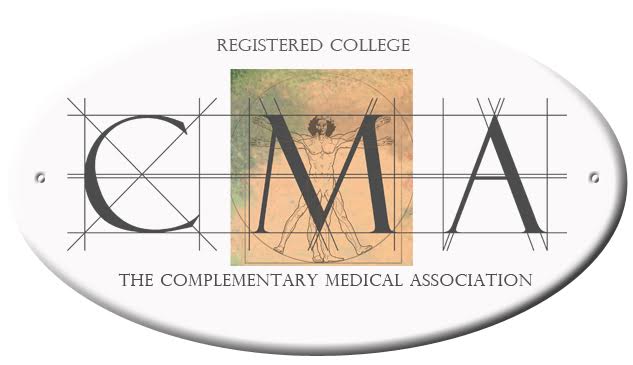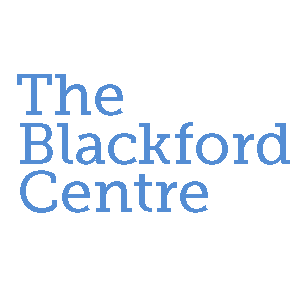Counselling Course
About Counselling Courses
So you’re looking at counselling courses…
It takes a special person to be a counsellor. You have to balance empathy with the ability to be logical and firm.
As a counsellor, you must be a good listener, but you should also know how to prompt your clients towards the right direction.
Most of all, you must have a selfless desire to help others improve their situation and cope with their problems.
You may be that special type of person. If you’re the one your friends and family turn to in times of trouble for advice and support, you may be considering becoming a counsellor.
Natural talent can get you a long way. But to become an effective counsellor – one who’s capable of giving help and comfort to those in need, you also need the benefits that come from training.
If you’re considering taking counselling courses, now may be the best time in modern history to seize this opportunity.
In recent years, government and industry have come to realise the value of counselling and its ability to improve social problems and mitigate harm.
Organisations are increasingly giving their workforce access to self-employed counsellors, or even adding counsellors to their work force, allowing more people like you, those with a calling, to achieve their full potential.
More organisations and universities, both traditional and online, are adding counselling courses to their offerings, increasing the opportunity for you to achieve your dream.
Counselling courses will equip you with the tools you’ll need to be an effective, responsible counsellor and help your clients to cope with what issues they’re facing.
It’s important to have proper training in counselling before practising because of the insight and competence that a solid counselling course can provide. You’ll learn to understand the nuances of what your clients are telling you. You’ll be able to recognise and evaluate statements that point to potentially harmful behaviour, you’ll discover how to help your clients make positive life choices, and you’ll be equipped to maintain a professional relationship with clients.
Why should I take a counselling course?
In the UK, South Africa, Australia, New Zealand, Canada, and many other countries, the law doesn’t require you to to take counselling courses, but it is obligatory in most US states.
But irrespective of the legal requirement, it’s still advisable to study. If you really care about others and want to help, you need to know the best strategies and practices for providing care.
Counselling courses provide new counsellors with invaluable tools for helping clients cope with depression, abuse, substance problems, family conflict and a host of other issues that they may have.
While your life experience may have uniquely prepared you to help others with their issues, some people may come to you with problems you’ve never experienced. Taking a counselling course can help you learn about the wide range of issues you may be confronted with as a counsellor. It will teach you when you can help, and when you need to advise your clients to seek other help.
Lastly, you have a moral duty to become as well-informed and competent as possible. Taking a counselling course can help you meet this obligation, honing your skills as a counsellor and preparing you to give the best guidance possible to your clients as they tackle their tough choices and situations.
How can I tell which counselling courses are better than others?
When you start looking for a counselling course, you want to pick the best course possible.
Separating the wheat from the chaff – that is, determining whether a counselling programme is legitimate – will take a little homework on your part. For starters, find out who endorses the course. Most reputable programmes have endorsment from a professional or educational association. Endorsment ensures that the institution you’re considering teaches a curriculum that conforms with professional standards.
Another good source of information is established counsellors. Practising counsellors have been through training programmes and network with other counsellors. Their experience can keep you from potentially making a big mistake regarding getting the right training.
What’s the best form of study – college or distance learning?
In today’s tumultuous economy, not everyone has the luxury of attending three to four hours’ worth of lectures each day. While traditional education institutions provide great counselling courses, their schedules tend to be rigid, and may not be compatible with yours.
An increasing number of students in counselling and other fields are turning to home-study and distance learning programmes to fulfill their educational needs. While in the past, home-study programmes couldn’t compete with a regular classroom, with the advent of the internet and an increase in home-study course quality, you can now get everything at home that you could in a formal classroom setting.
All of the barriers that may keep you from taking counselling courses at a formal university — job demands, kids, commuting — these can be eliminated by distance learning. Whatever can be delivered in a classroom can now be offered by distance learning, including the opportunity to ask questions and hand in assignments via email.
Distance learning allows you to do coursework at your convenience and at your own pace. This holds an advantage over the traditional classroom in that you have more time to fully learn the lessons being taught, and you’re not forced to spend more time than necessary on aspects of a counselling course that come easy to you. You can complete coursework early in the morning or late at night when you come home from work.
While distance learning offers a lot of flexibility, it does require students to be self-starters. With no set class times and fewer deadlines, it’s up to you to keep up with your classwork.
While there are fewer deadlines in a distance learning class, you will be expected to hand in assignments and you won’t qualify unless you do so. With a distance learning class, the responsibility for your success lies more squarely on your own shoulders than in traditional classrooms. If you’re thinking about taking a counselling course via distance learning, you should keep this in mind and develop responsible study and work habits.
What type of experience do I need to study a counselling course?
The level of experience the counselling course may require of you depends on the organisation offering the course.
In general, traditional colleges tend to require specific qualifications, while distance learning courses are more lenient about prior experience. These pre-requisites are usually listed on the institution’s brochure or website.
While distance learning courses generally don’t have a lot of prerequisites, you may want to pick up a little experience in the field before enrolling in a counselling course. You can do this by becoming an intern with a charity or non-profit organisation, or by interviewing and networking with mental health professionals or religious groups that provide mental health services.
Getting your feet wet before committing to taking a counselling course is a good idea because it allows you to determine whether counselling is for you. You’ll quickly see whether you have a passion for and aptitude in the field or find that counselling just isn’t for you. Counselling courses can take up time and money, so it’s best to know whether counselling really is the right field for you before you decide to invest your time and cash into taking courses.
What kind of job can I get after doing a counselling course?
The career opportunities for well-trained counsellors has expanded greatly in recent years as private business and the government has increasingly realised the value of mental health services.
After completing counselling courses, students can set up their own small counselling services or find employment in a variety of organisations. Big corporations are increasingly realising the value of providing assistance to employees in times of need, thus leading to a rise in in-house or contracted counselling services.
Human resources are often a company’s largest single investment, so keeping people happy is a growing priority for companies in the current competitive economic environment. In this capacity, you can help employees remain productive by helping them with personal problems or issues at work that may hinder their productivity and performance.
Trained counsellors can also find employment with non-profit organisations that provide services to under served or low-income populations. For counsellors who are very altruistic and idealistic by nature, this career opportunity can be very rewarding as it gives you the opportunity to provide services to those who need it most and get it least.
Quite a few governmental organisations employ trained counsellors in a variety of roles, such as providing services to crime victims or survivors of natural or man-made tragedies. As knowledge about the social benefits of mental health services grows, it’s likely that more and more government agencies will retain the services of trained counsellors in the future.
A counselling course may also stand you in good stead at your current job. Many companies reward professional development, so if you’re in a job that involves human resources, dealing with the public or managing personnel, taking counselling courses may help you get a raise or a better position in your organisation.
As you can see, the opportunities for those who take counselling courses are broad, making counselling a good field to study.
Do I need particular qualifications to practise?
At present, the UK does not require counsellors to have professional accreditation. In the US, there are a variety of professional certifications counsellors may be required to have; and these vary from state to state. Most other countries, don’t require certification. That means you can normally set up your own private practice quite easily and without government hindrance.
By taking a counselling course now, you may be able to satisfy future government requirements for counsellors. Even if your training doesn’t match what the government eventually requires, you may have a leg up on fulfilling the requirement, or lawmakers may recognise your professional development and ‘grandfather’ you in under the new rules.
Other than the legal ramifications of taking counselling courses, as mentioned before, they can provide you with the skills and proven strategies to be a more effective counsellor, better enabling you to help your clients cope with their difficult issues.
So, a counselling course is an advisable investment for anyone in the counselling field or considering going into it. For the investment made, it can provide benefits in increased employability and job competence.
Why is counselling so valuable?
Counselling is valuable for a great many reasons. It can provide help, hope and comfort for those confronted by stressful and traumatic life issues, allowing them to live fuller and happier lives. By providing help and guidance, trained counsellors can help facilitate positive outcomes, preventing tragedies that may arise from their patients’ issues such as suicide, domestic violence, substance abuse and poor job performance.
Counselling can often be the only outlet for people dealing with incredibly difficult life issues to talk about their problems in a safe setting with someone trained to help them find good solutions for their problems. Talking through these problems can greatly aid in coping and taking positive rather than negative action to deal with them.
What’s the future of counselling?
As the benefits of good mental health policies become more evident, and the stigma attached to seeking counselling wanes, it’s likely that counselling will be a growing service and career opportunity.
Nearly everyone can benefit from counselling at some point in their lives. Whether it be a death in the family, school problems such as bullying, marital problems or substance issues, the life challenges we all face at some point can be helped by a counsellor who will listen and help guide you through your issues.
In the past, counselling was stigmatised as the refuge of the mentally weak and morally compromised. These outdated attitudes are being replaced as more people realise that visiting a counsellor with a life issue is no different than seeing a doctor for a medical problem or a repair person for a mechanical problem such as central heating.
Today, an increasing number of people are taking advantages of the many benefits that counselling can provide. Actors, professionals, politicians, people from all walks of life are accepting the many benefits counselling can provide.
The need for counsellors is expected to grow in the coming decade, and so is the body of knowledge in the field. By taking advantage of counselling courses and other professional development opportunities, you can insure your ability to help and aid your quest for career advancement.
Good luck!
References
http://www.helptoheal.co.uk/
http://www.counselling-directory.org.uk/
If any of these links are broken, please contact us here: www.inst.org/counselling-courses/contact



